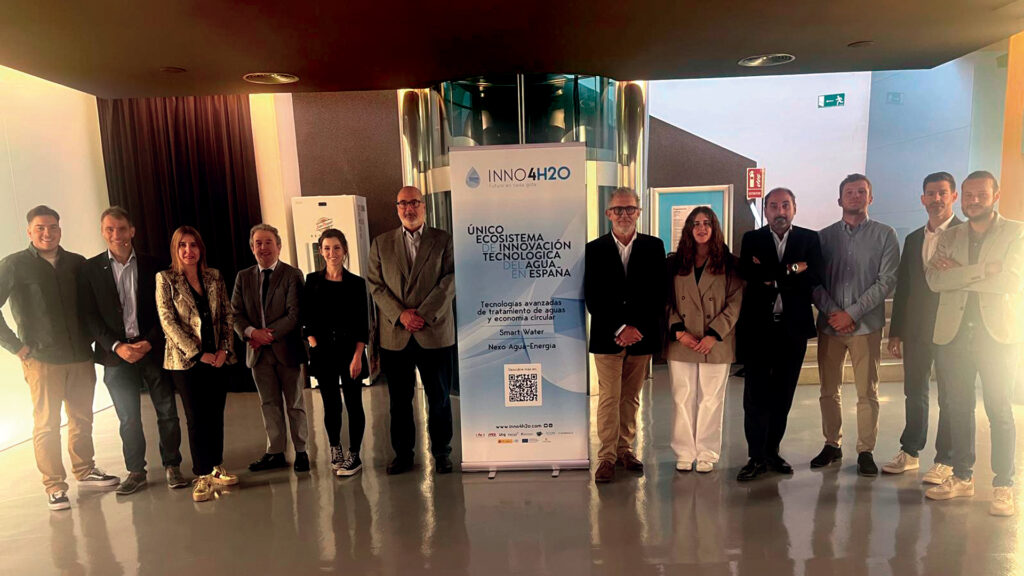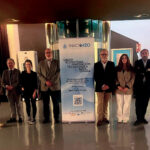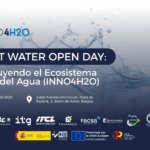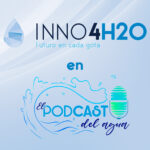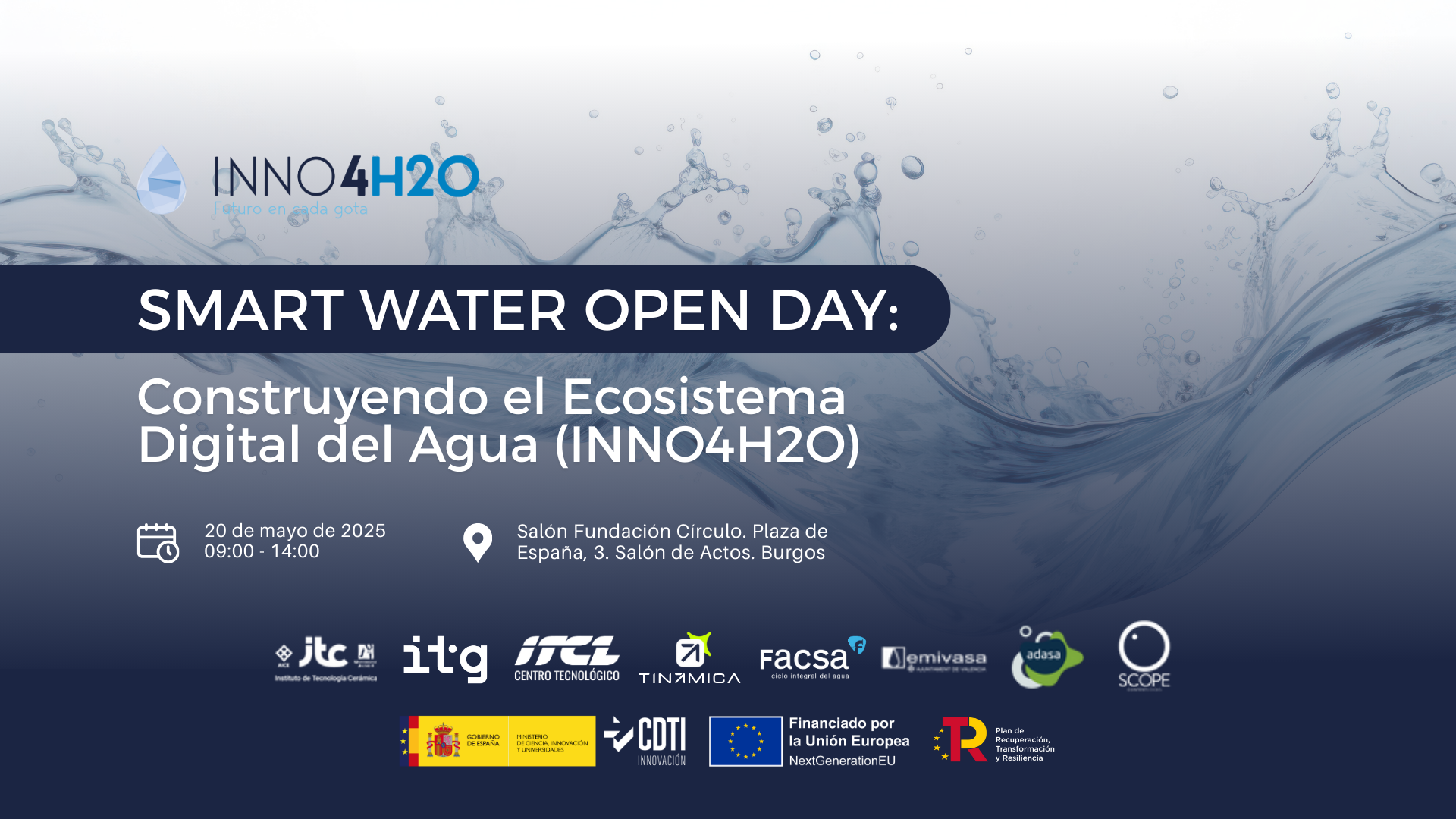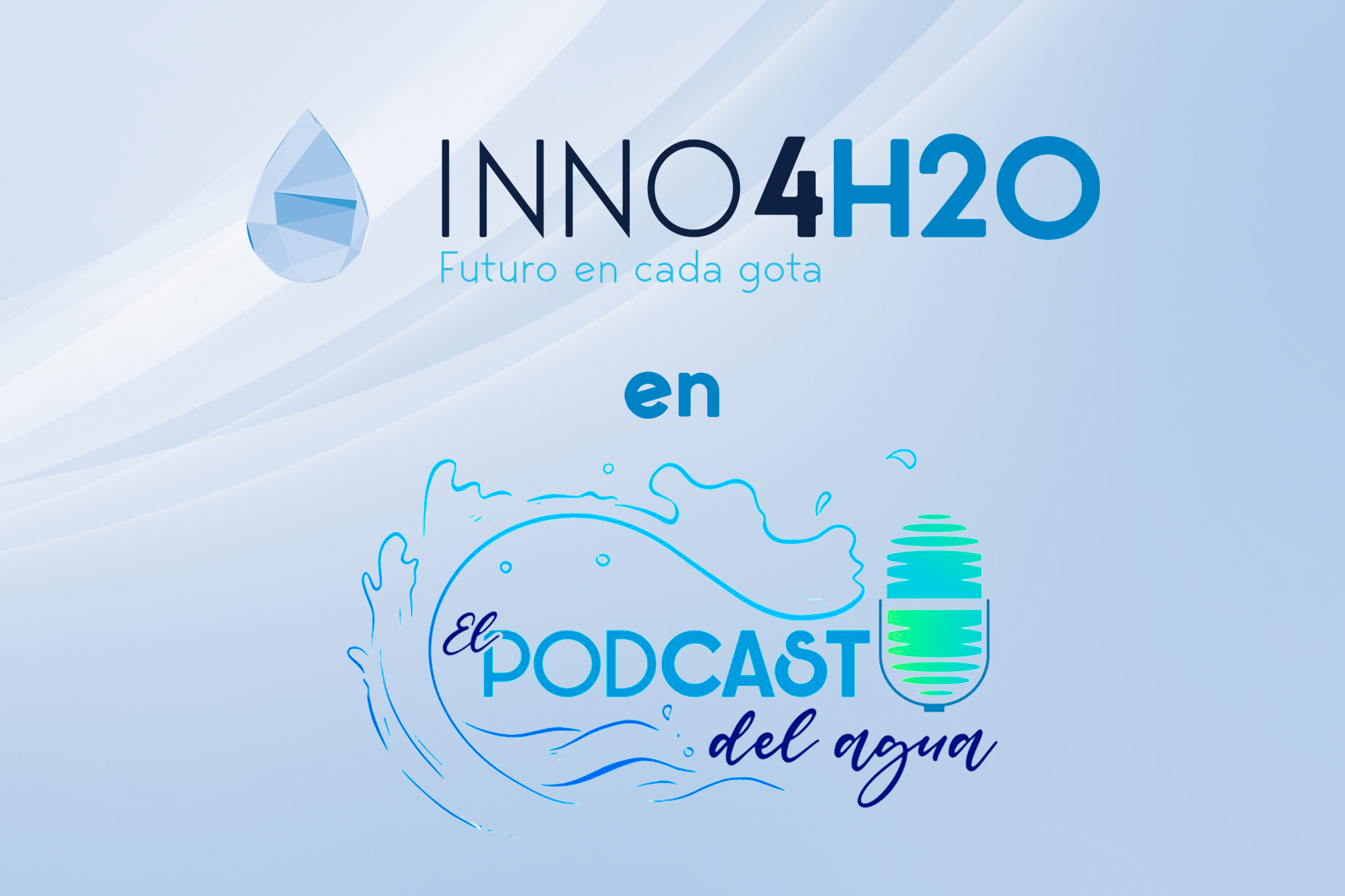Under the title. “Building the Digital Future of Water”. and organized by ITCL Technology Center, we have celebrated last May 20th our first Open Day our first Open Day. A day with a clear objective: to share knowledge, challenges and new digital solutions for the integral water cycle to face a more efficient and resilient future.
At the opening of the event, Javier Sedano (General Manager of ITCL), highlighted the relevance of the event in his eagerness to “provide technological solutions to improve the quality of the Spanish water system”. to “provide technological solutions to improve the quality of the Spanish water system”. This is one of the major commitments of our Ecosystem, which Alicia Andreu (Head of New Markets at ITC Institute of Ceramic Technology) emphasized during the presentation of INNO4H2O as a pioneering Innovation Ecosystem in the water sector.
Jorge Fuentes (FACSA’s Head of Information Technology and Operation Systems) also spoke about digital transformation, sharing his experience with the City Council of Castellón in the project #SINARGIA and the impact of initiatives such as digital twins in WWTP, the use of artificial intelligence for monitoring aquifers or consumption predictions.
In the turn of AGUAS DE BURGOS, Antonio García Pastrana (Managing Director) and Miriam Fernández Lara (Technical Director), announced the forecast of achieving a 10% saving in the city’s water consumption this year. And all this thanks to the digitalization of its processes: Burgos is currently one of the cities with the greatest development in this respect, benefiting a total of 71 municipalities, 120 population centers and a notable industrial fabric.
The first of the round tables, moderated by Hugo Jiménez (Data Scientist & Head of Innovation at TINAMICA), was attended by Borja Sanz (Digital Solutions Area Director & Urban Water Manager at ADASA), Juan Luis Sobreira Seoane (Managing Director at ITG Centro Tecnológico) and the aforementioned Javier Sedano, Antonio García Pastrana and Jorge Fuentes. The debate brought to the table different approaches, strategies and challenges on the digitization of water, highlighting the relevance that information can have for optimal management decisions. All this without forgetting the regulatory framework and the necessary application of ethical principles and digital equity.
The conference continued with a presentation on “Membrane Bioreactors” by Victorino Díez (Professor of Chemical Engineering, UNIVERSITY OF BURGOS). Victorino Díez (Professor of Chemical Engineering, UNIVERSITY OF BURGOS, Spain).). Why consider wastewater as a waste if we can transform it into a resource? In innovation in water treatment, the role of university research is key, as well as its knowledge transfer to industry.







Juan Boix Palomero (Head of the Industrial Processes Area of ITC Institute of Ceramic Technology) opened his turn reviewing some of the projects related to industrial water management in which they have worked, mainly in the ceramic sector (Life Rewaincer, Aqua2 Val, iWays). His presentation immersed us in the concepts of modeling and simulation, the relationship between models and digital twins, some examples of modeling techniques and finally, their encapsulation.
Digging further into the path of the Digital Twins and their influence on water infrastructures, David de Miguel (Energy Efficiency and Sustainability R&D Technician at ITCL Technology Center) appeared on the scene. David delved into the technologies behind it all, from physical assets to operational and final control, through the Internet of Things, data storage, digital modeling, processing and visualization.
José Ángel Carmona (Director Cybersecurity & Digital Solutions) and Daniel Reina (Country Head of Security) spoke to us on behalf of CELLNEX TELECOM about vulnerabilities and risks in cybersecurity in critical infrastructures . If you do not have visibility of what is happening with your assets, it is impossible to protect them, just as if you do not have a team trained to react (always backed by a solid automation system).
“Challenges of Technology to mitigate the effects of climate change on water management” was the title of the second round table, a debate that served to close the day. Led by Manuel del Jesús (Head of the Hydroclimatology Group at IH Cantabria), Alicia Andreu and Juan Luis Sobreira accompanied this time by Stephanie Aparicio (Head of Innovation in the area of drinking water at GLOBAL OMNIUM) and Jordi Cros (Co-leader of the group of experts in digital technologies of WATER EUROPE and Director of Innovation at ADASA) discussed the incidence of water scarcity and extreme events associated with torrential rains, two opposing phenomena that concern (and occupy) all stakeholders involved in water management. Once again, the focus was on the role of technological innovations, but also on the necessary changes in the governance system.
From INNO4H2O, we would like to thank all the companies, institutions and professionals who have collaborated in this event.

